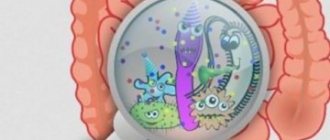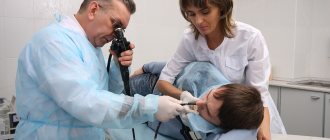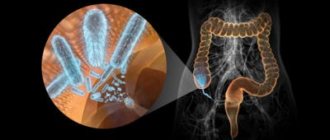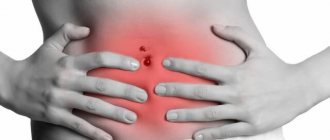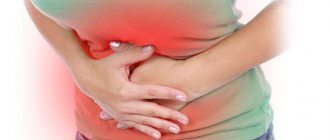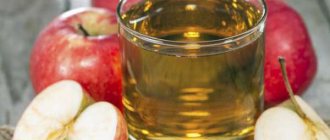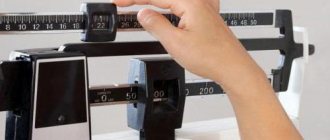08/22/2020 Alena Masheva Health There are many diseases that can only be cured with the help of antibiotics. Drugs in this group are prescribed at almost any age for serious pathologies, since the effectiveness of these drugs can hardly be compared with any other medicine. But antibiotics have a significant disadvantage - they completely destroy both pathogenic and beneficial microflora. The gastrointestinal tract primarily suffers from this. To avoid negative consequences, in particular, cases when the stomach hurts after antibiotics, it is necessary to follow the rules and recommendations regarding taking the drug. This is what we will talk about today.
What are antibiotics?
Probably every person knows what a medicine from this group is. They are often irreplaceable, since other drugs are weaker in action and do not contribute to effective treatment. An antibiotic is a semi-synthetic or natural (natural) substance, the principle of which is to block the development or completely destroy pathogenic microorganisms. But, as you know, “anti” means against, and “bios” means life. Consequently, drugs from this group destroy absolutely all microorganisms, even useful ones and extremely necessary for the proper functioning of all systems. This is where the problem arises when the stomach hurts after antibiotics, since this is where all the beneficial bacteria accumulate.
The effect of antibiotics on the human body
Due to the destruction of beneficial microflora, a disruption in the functioning of the digestive system occurs. Along with pathogenic organisms, bifidobacteria and lactobacilli are destroyed. Why is it the gastrointestinal tract system that suffers first? To digest substances entering the body, the glands of the stomach produce juice, consisting mainly of enzymes and hydrochloric acid. They help break down proteins and fats, as well as grind food into porridge. This makes it easier for it to get into the intestines, where some of the substances are absorbed and others are excreted. The same thing happens after antibiotics enter the body. Therefore, it is important to ask the question of protecting the gastrointestinal tract even before starting to take the drug.
Stomach hurts after antibiotics: what to do?
Restoring microflora is the main task in the treatment of dysbiosis. For the most effective treatment and quick elimination of the negative consequences of taking antibiotics, it is recommended to approach the problem in a comprehensive manner. There are a number of possible actions to do this:
- Diet planning. The daily menu should include “gentle” foods that do not have an aggressive effect on the stomach, as well as foods rich in nutrients.
- Rejection of bad habits. Smoking and alcohol are terrible enemies of humanity, which have a detrimental effect on the condition of the stomach and other organs.
- Selection of medications. The doctor can select medications rich in enzymes, probiotics and prebiotics that will help restore the microflora of the gastrointestinal tract.
- Alternative medicine. Folk recipes, proven over centuries, will also make positive changes to the condition of the stomach and intestines.
Which organs can be affected by antibiotics?
When taking penicillin antibiotics, an allergic reaction may develop, swelling and severe pain in the throat.
Drug fever develops when taking beta-lactam antibiotics. Its first symptoms are chills, aching joints and bones .
Some antibiotics cause kidney toxicity. While taking them, you may feel pain in the lumbar region.
During treatment, women develop vaginal dysbiosis, which is accompanied by pain in the lower abdomen.
Almost all antibacterial therapy drugs negatively affect the liver, stomach, and intestines, so pain in the right or left hypochondrium, in the iliac region, in the lower abdomen appears while taking antibiotics.
Eliminating the negative effects of drugs through proper nutrition
So, the first thing you need to do when your stomach hurts after antibiotics is to adjust your diet. Healthy eating is the basis for a “happy” stomach. The diet will help improve the digestion process and restore important functions of the gastrointestinal tract. Here's what experts recommend:
Healthy lifestyle
Although nutrition is the basis of good health, without following some other important recommendations, the result will have to wait much longer. So, if your stomach hurts a lot after antibiotics, you definitely need to give up bad habits and lead a healthy lifestyle. Nicotine and alcohol negatively affect the gastric mucosa, delaying the restoration of microflora, and also preventing the body from cleansing toxins, for which the liver is responsible. So, if you want to get rid of dysbiosis as quickly as possible and return to your usual lifestyle, you need to find the strength to give up bad habits.
Folk remedies
Folk remedies are used only on the recommendation of the attending physician as an addition to drug treatment. The course of taking decoctions or infusions ranges from two weeks to a month. You can resume treatment with folk remedies after a break of a month, changing the decoction or infusion.
- a collection of chamomile, sage, St. John's wort - a tablespoon of dry herb per glass of boiling water, leave for two hours. Take half a glass in the morning and evening after meals;
- brown flax seed and lemon balm - a tablespoon of the mixture per glass of boiling water, leave for two hours and take half a glass in the morning, lunch and evening;
- chamomile and dandelion flowers - a dessert spoon of chamomile and a tablespoon of dandelion flowers per glass of water. The mixture is boiled for 15 minutes over low heat, followed by infusion. Take 200 ml in the morning, at lunch and in the evening before meals.
In addition to herbal remedies, in the treatment of dysbiosis, drinking 200 ml of warm whey two to three times a day has a good effect. The serum has a beneficial effect on normalizing the microflora of the stomach.
A good effect for normalizing digestive function is provided by the consumption of honey, which is rich in microelements and has antimicrobial and anti-inflammatory properties. The combined use of honey and propolis not only actively restores the beneficial microflora of the stomach, but also stimulates the body's immunity.
Restoring the balance of gastric microflora will be successful only in complex treatment prescribed by a doctor. With proper adherence to the diet, taking medications supplemented with traditional medicine, the prognosis for health and ability to work will be positive.
To combat diseases, you have to use many medications, including potent ones.
So, when parasites are detected in the body, strong drugs are prescribed that negatively affect all organs, but it is impossible to recover without them.
Almost always, after antibiotics, it is necessary to restore the balance of the microflora, intestines and other organs, since along with the pathogenic ones, the necessary bacteria were also destroyed.
Drug treatment
An important step in restoring the functioning of the gastrointestinal tract is taking medications. There are a sufficient number of products on the pharmacological market that have a beneficial effect on the stomach and help restore the microflora. They allow you to quickly get rid of dysbiosis by giving the body beneficial bacteria. These drugs include products containing enzymes or prebiotics/probiotics. Let's get to know them better.
Preparations containing enzymes
Usually, a patient consults a doctor if his stomach hurts after taking antibiotics. What does the doctor recommend to do in this case? One of the options for helping the patient is prescribing enzyme-containing drugs. These include, for example, the following tools:
Tablets from this pharmacological group help accelerate the process of restoration of microflora, and also have a positive effect on the speed of the stomach and intestines. Enzymes take part in the digestion of food, thereby simplifying the task for the stomach.
Preparations containing probiotics and prebiotics
There are now quite a lot of advertisements on TV about these medications. Probably every child already knows that they help cure the tummy. This is an excellent solution if your stomach hurts after antibiotic injections. Prebiotics and probiotics work most effectively in pairs: the first substances promote the formation of lactobacilli and bifidobacteria in the body, which take part in the digestion process, and the second help the stomach to properly perform its “work.” Popular prebiotics include:
Probiotics:
Helpful tips when taking antibacterial medications
In addition, if you want to take prebiotics and probiotics with antibiotics, you need to do the following at home:
- Do not take medications of this pharmacological group because they helped someone. Always consult your doctor.
- After taking antibacterial agents, my stomach hurts, but the course is not over yet. The doctor will change the drug and select a more suitable one to eliminate the complication.
- Self-medication with antibiotics and painkillers at the same time is prohibited. Strengthening the effect can lead to irreversible consequences.
- Antibiotics do not work against viruses. They only treat bacterial infections.
What drugs will relieve abdominal pain after antibacterial drugs. Prebiotics and probiotics, as well as some traditional medicines, have these properties.
After taking antibiotics, the stomach hurts due to the lack of beneficial bacteria, which the drug kills. The microflora can be restored through various actions recommended by a specialist. Otherwise, if untreated, harmful bacteria will poison the liver and the body, respectively, which will lead to severe irreversible consequences.
Alternative medicine methods
We have already received the answer to the question of whether the stomach can hurt after antibiotics, as well as why this happens, and we have even considered several possible options for eliminating these unpleasant phenomena. But therapy is more effective and faster if it is comprehensive. There is another good “helper” in the fight against dysbiosis - traditional medicine. Recipes that have been tested for decades give no reason to doubt the effectiveness of these remedies. Let's look at the most useful of them.
- For 10 days before breakfast and after dinner, it is recommended to take an infusion of walnuts, pumpkin seeds and sunflowers. All ingredients in the amount of 10 g of each must be crushed, pour in 100 ml of boiling water and allow time to brew.
- For decades now, doctors have recommended giving newborns dill water, which helps the baby get rid of flatulence. This is a truly effective remedy that you can prepare yourself. You need to pour 1 teaspoon of dill seeds into 100 ml of boiling water, leave, strain, and then drink 1 spoon 3 times a day.
- When your stomach hurts after a course of antibiotics, it may be accompanied by diarrhea. To get rid of it, it is recommended to seek help from raspberries and currants. The recipe is simple - make a compote from the berries, and then drink 2-3 glasses of it a day. This will be useful not only for the gastrointestinal tract, but also for the whole body.
- If long-term antibiotic therapy is required, patients are advised to drink beetroot juice. It helps normalize the level of red blood cells.
- An infusion of kombucha helps improve the digestion process. It is also useful not only for the stomach, but also for the whole body.
- Propolis tincture has excellent anti-inflammatory and regenerating properties. It helps restore normal functioning of the stomach and helps “grow” beneficial microflora.
Localization of pain
An important point is to study the localization of pain that develops when taking the drug. If discomfort occurs immediately after use or over an hour period after drinking the tablet, localized in the upper abdomen, the problem is probably with the stomach. We are talking about irritation of the mucous membrane, which could be observed before taking the medicine, poor nutrition, the need to choose a gentle diet and follow the rules for receiving the drug after eating. Serious symptoms - vomiting in addition to pain, belching, acute pain syndrome indicate the need to stop taking the drug, replace it, or switch to injections instead of tablets. You need to inform your doctor about your symptoms.
Tugging sensations in the right hypochondrium indicate liver disease. The organ could also be overloaded before taking the drug due to poor nutrition, unhealthy lifestyle, or previous diseases. Protective medications are effective, but you should inform your doctor that your liver is reacting to the antibiotic. It is possible to choose gentle means and additional protective measures.
The middle and lower areas of the abdomen are associated with the intestines; pain, discomfort in this area, bloating and discomfort indicate damage to the mucous membrane or microflora disorders - when taking antibiotics, the second phenomenon is more likely. Many people complain about this side effect; it is common, and with the right approach to treatment, it is the least dangerous.
Supplements with lactobacilli, food products that restore microflora - all this is aimed primarily at normalizing intestinal function. The restoration of the microflora takes several weeks, it does not happen instantly, but when the biota is restored, the unpleasant phenomena disappear. Beneficial bacteria are able to recover on their own, but without additional help the process takes much longer, therefore, unpleasant symptoms will continue to be observed for a long time, and therefore the body needs help. Malaise, left to chance, with poor nutrition and an unhealthy lifestyle, gives additional risks and creates serious disorders and diseases of the gastrointestinal tract.
What you need to know when taking antibiotics
In order not to later wonder why your stomach hurts after antibiotics, and what to do about it, it is advisable to take care of protecting the microflora right away. Usually, along with taking medications, the doctor also prescribes a drug that has a beneficial effect on the microflora of the gastrointestinal tract, for example, Linex, Acipol, Bifidumbacterin. Simultaneous use of antibiotics and drugs that prevent the development of dysbiosis will help avoid negative phenomena.
There are also a number of rules that must be followed. These simple steps will help you feel better during antibiotic therapy:
- Before taking the medicine, you should definitely eat. Antibiotics should not be taken or injected on an empty stomach.
- It is recommended to eat foods and dishes that have enveloping properties. This will help minimize the negative effects of the drug on the stomach. For example, slimy porridges, puree soup and jelly.
- Antibiotics in any form destroy the microflora of the gastrointestinal tract. But taking pills has a much worse effect on your health. To reduce stomach pain after treatment with antibiotics, it is better to ask your doctor to prescribe the drug in the form of a solution. It is sold in ampoules, intended for intramuscular or intravenous administration. It is believed that this option is much safer, since it goes directly into the bloodstream, bypassing the gastrointestinal tract. In this way, side effects can be avoided.
- It is recommended to take antibiotics in tablet form only with plain filtered water without gas. Avoid drinking juices, milk, tea, coffee and other drinks.
Factors contributing to the development of dysbiosis
Stomach dysbiosis can develop not only as an independent disease, but also as a pathology that appears against the background of an existing disease of the digestive system. The following factors contribute to this phenomenon:
- stressful conditions;
- chronic diseases of internal organs;
- long-term use of antibiotics;
- errors in nutrition;
- abuse of alcohol, tonics and colored carbonated drinks;
- various gastrointestinal diseases;
- low body resistance.
Important! Stomach pain that appears after undergoing a course of antibiotic treatment for any disease in the form of exacerbation of a chronic pathology or acute infection requires mandatory examination and treatment by a gastroenterologist.
Before prescribing treatment, a diagnostic examination of the stomach is carried out to determine the presence of a disease against which dysbacteriosis develops. Diagnosis of the disease consists of the patient’s complaints, the clinical picture of the pathological condition, gastroscopy of the stomach, and laboratory tests.
After clarification of the diagnosis, therapeutic measures are prescribed. First of all, this is a diet, since a weakened stomach requires careful treatment to restore the normal digestion process.


